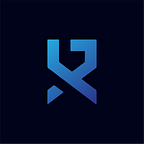Tuesday, 12 April 2022
Work has been okay-ish. You know, back to a position where there’s not much so I’m practically sitting around in the office killing time. Health is maybe 80% so sitting around is actually kind of uncomfortable. I’d work on NFTs and stuff during the free time but I try to find any relevant work I can do during office hours — Feels like the least I can do.
Anyways, the next few days are gonna be a bit thin on the NFT Front. My evenings for this week are occupied by family dinners around 7 to 8 + working on that freelance gig every now and then too. So I only get maybe an hour or so to work on the NFT stuff + writing out entries. Another issue is that I need to be sleeping around 10 or so because rest is important during this period too. Should get better from next week as I plan not to take on writing during weekdays and my health should get better, so I can sleep later.
So I actually wanted to write up about this in one go — I really thought I could watch the entire interview in a single seating. Not even close. Thus, I decided to watch 1 to 2 parts per day and share my notes on them. By interview, I mean the recent interview of Punk6529 (people call him 6529) by Raoul Pal.
1) 6529’s interview w Raoul Pal
As a preface, 6529 is one of the greatest thinkers in this space. I learned a lot, just by watching the first half-hour of the interview. It was exceptional.
In 2013, 6529’s perspective on Bitcoin was that it was elegant on 2 fronts. Technically, it solved a major problem in distributed systems and computer science — The Byzantine General’s Problem. While our lives (as they are) are run by databases, the blockchain gives us a way to store information, not on a database. On the social side, as we become more digital, we are trusting a smaller number of larger parties — Facebook, Twitter, etc. From the start, the key idea of the internet was to decentralize. However, as there are no distribution barriers online, the result was a bigger number and scale of oligopolies. The blockchain allows people who do not know or trust each other to operate together. Due to this, you can rearchitect entire chunks of how society works. Now, we have another tool to use alongside databases. 6529 also recognises that not all information should be on the blockchain. Most information is suited to databases. However, some of the more important things belong on the blockchain.
6529 believes that the problem with traditional system people and regulators is that many have never experienced bitcoin, NFTs or the blockchain. This distorts their image of Web3 and NFTs.
In 2019, 6529 realised crypto’s consumer moment was in NFTs. Technology becomes consumerised when you stop talking about the technology. The technology itself or how it works does not matter to most people. Similarly, no one cares about decentralisation in itself. But, with NFTs, we use blockchain technology without talking about it explicitly. In addition, every organization on the planet has an incentive to mint an NFT, as NFTs can represent anything and everything. As a result, major brands will move into the space first — as they already are, with Nike, Adidas and even Dolce Gabbana. Then, packaged goods companies, universities, sports teams and many other organisations will enter. Over the next decade, everyone will have many, many NFTs.
There is also the aspect of Community. NFTs can turn communities inside-out, as you don’t need to be in the community to read about the information inside it. The information is all on the blockchain.
Right, so obviously, not the usual length of articles. But… what to do? Other commitments have been limiting my time. As I said, it should get better next week and I plan to return to the originally scheduled broadcast by then. But for now… See you tomorrow!
